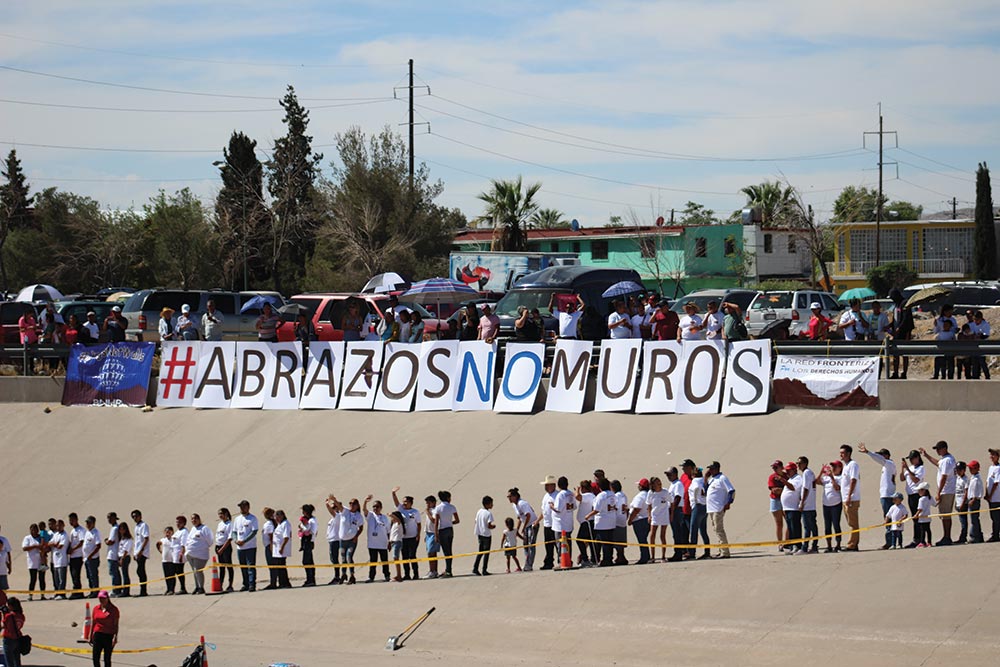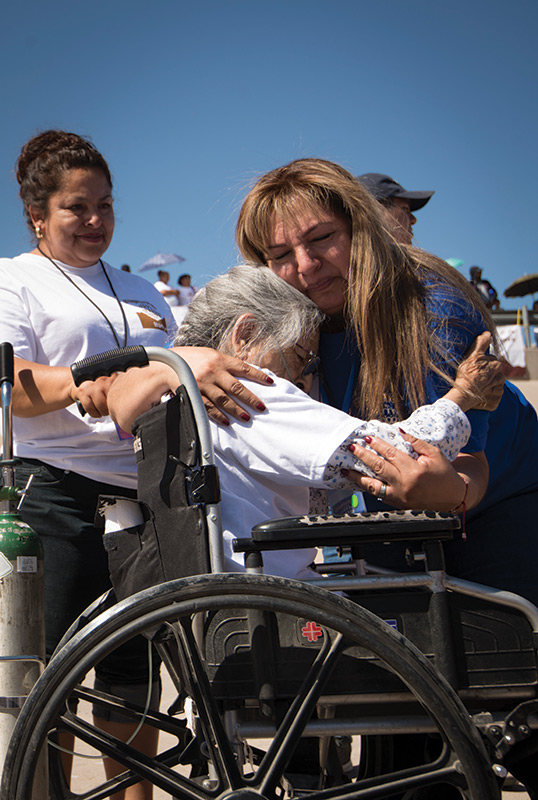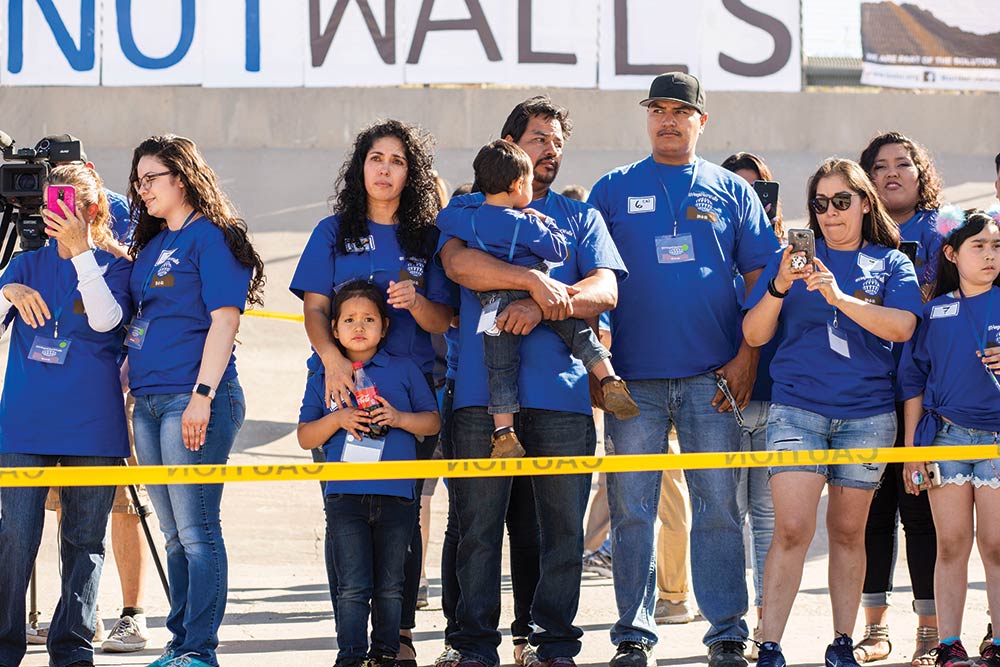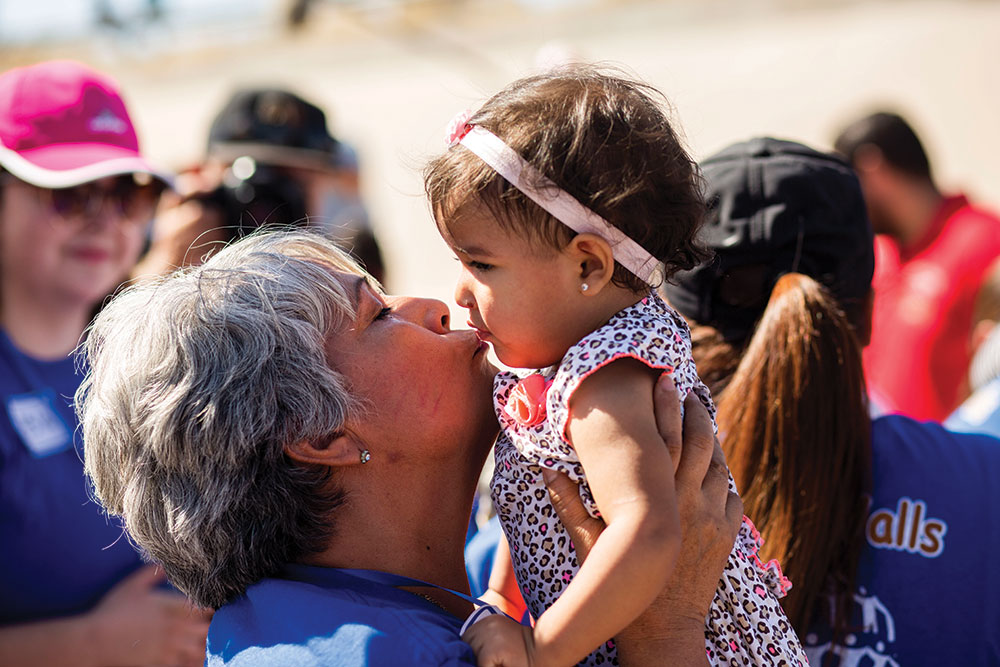Hugs not walls
At a park as the sun begins to rise, our UD group meets up with members of the Border Network for Human Rights staff, Border Patrol and other volunteers. Fernando Garcia, director of the Border Network, gives us instructions and leads us toward the dried riverbed. Families who have not been united in three, 11, even 15 years or more line each side of this division between the U.S. and Mexico. Some hail from the sister cities of El Paso and Juárez, while others have driven in from cities far removed from the border. They receive T-shirts imprinted with “#HugsNotWalls” and wait, peering across the sand to catch a glimpse of someone they love. A loudspeaker cries out the national anthems of both the United States and Mexico. And then a voice says go.
The families rush toward one another and embrace.
A timer counts down three minutes.
And then the voice on the speaker sounds again, this time saying time is up. Some in our group now have the seemingly impossible task of separating the families, ensuring the blue T-shirts return to the U.S., the white T-shirts to Mexico. I stand on a ramp leading up to the U.S. from the riverbank, where I collect their badges. Children, many too young to understand the gravity of such an event, ceaselessly cry as they see loved ones ascend the opposite ramp. Other family members walk hand in hand with the same tears rolling down their faces. I have tears in my eyes as each person thanks me for the opportunity to see their family.
Thanks me. For three minutes. Three minutes that, because of the law or their legal status or personal circumstance, they could secure no other way.
Why is three minutes OK, but beyond three minutes illegal?
“So many lives are affected, but life simply goes on.” —Josh Segalewitz
It seems arbitrary. It was but one of many instances that demonstrate how normalized such absurdity is at the border. So many lives are affected, but life simply goes on. This is part of what it means to live in a borderland.
Among this discouragement, however, Hugs Not Walls stands as a beacon of hope for the future. Fernando Garcia asserts time and again that this event is not only an act of love and dignity but also an act of protest. The fact that so many people — families, volunteers, even the U.S. Border Patrol who offer medical care to an undocumented woman on the American side — are willing to participate in an act that so clearly challenges the traditional conceptions of the southern border gives me hope.
Josh Segalewitz is a junior from Dayton. He is a leader in PAVE, the Peers Advocating for Violence Education, and was a member of the 2018 DC Flyers. He will be participating in the Malawi Research Practicum in summer 2019.
Photos by Maura Parker, Taylor Alexander, Glenna Jennings
Want to see the work of UD's Moral Courage Project?
America the Borderland
April 11-May 12, Keller Hall atrium
Opening reception: April 11 following the St. Oscar Romero Human Rights Award and Symposium
Podcast and web experience: www.americatheborderland.org available beginning April 12
Ferguson Voices
April-August, National Civil Rights Museum, Memphis, Tennessee
Podcast and web experience: www.fergusonvoices.org



